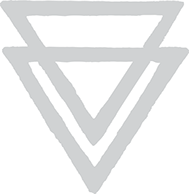


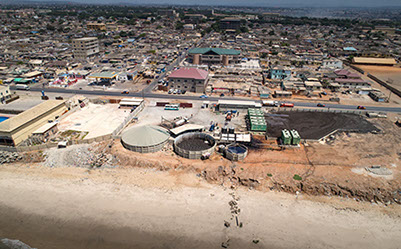
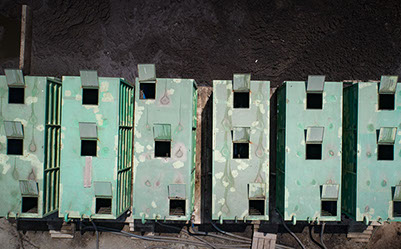
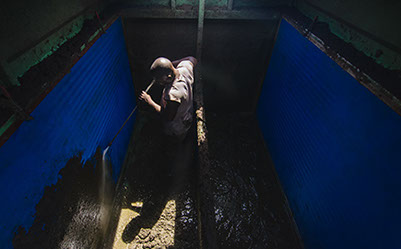
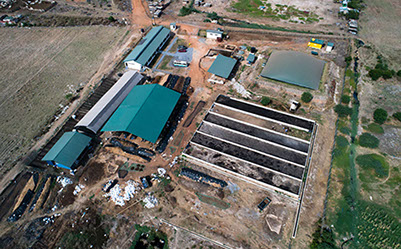
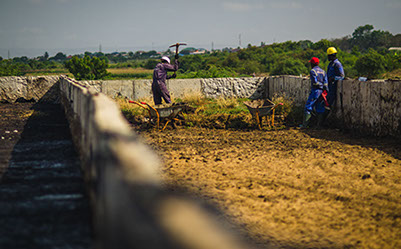
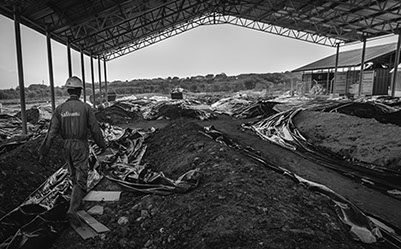
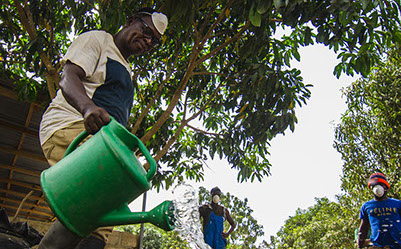
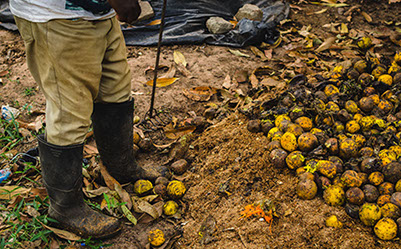
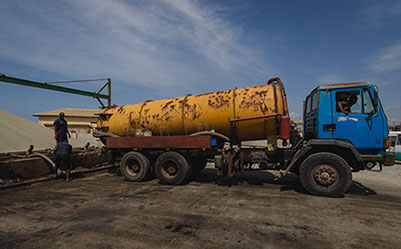
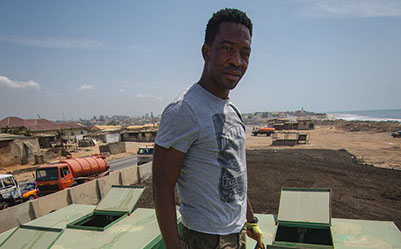
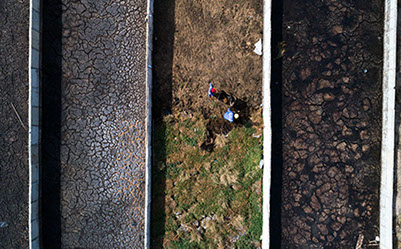
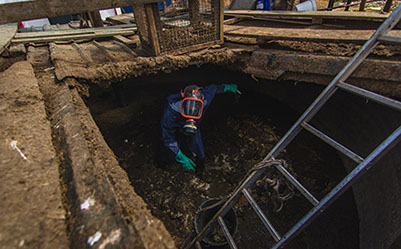
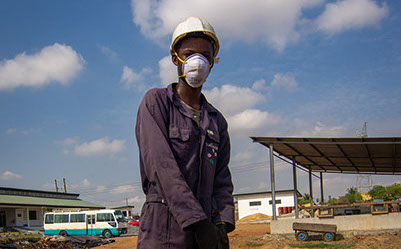
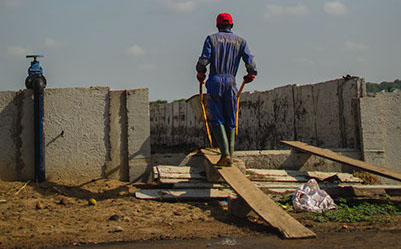
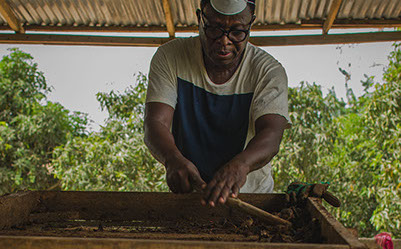
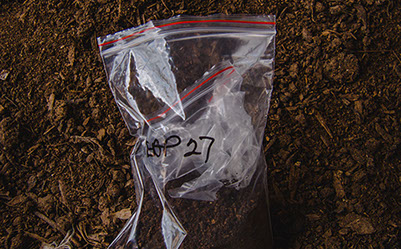
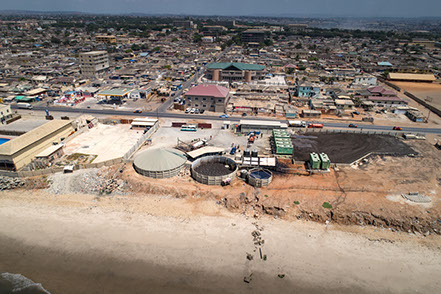
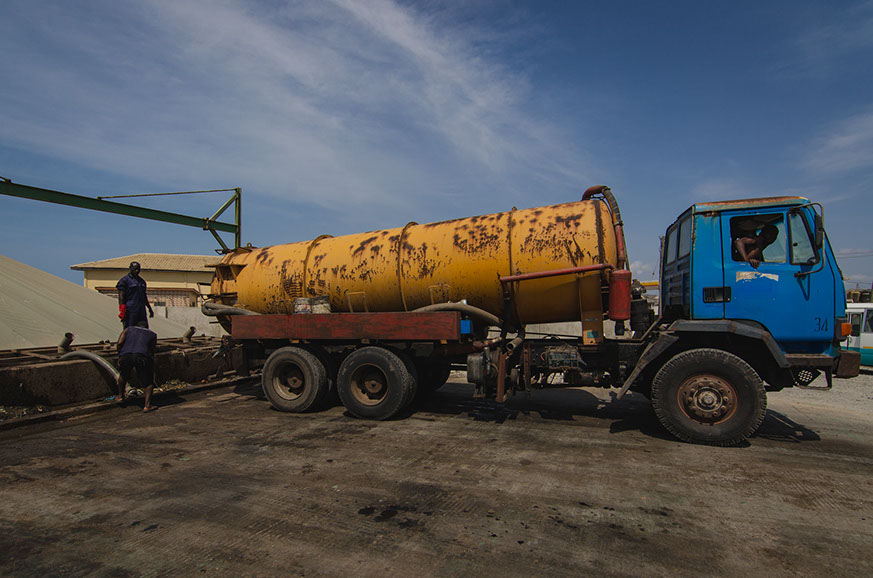
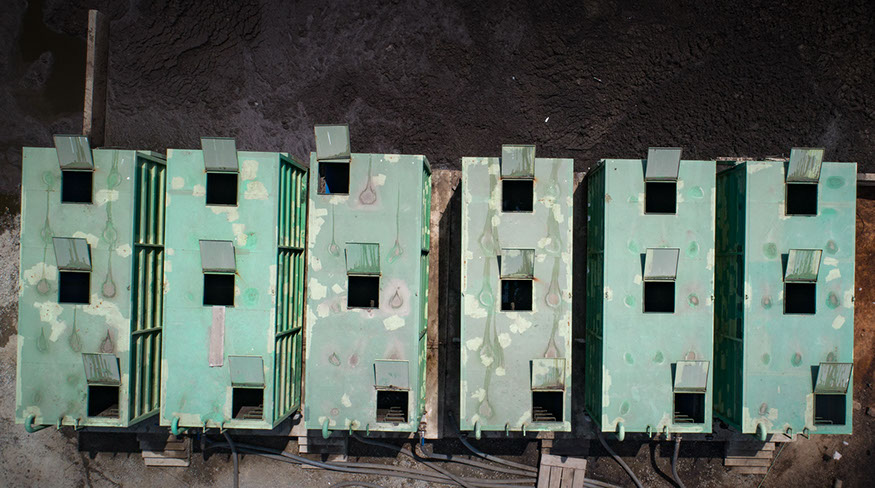
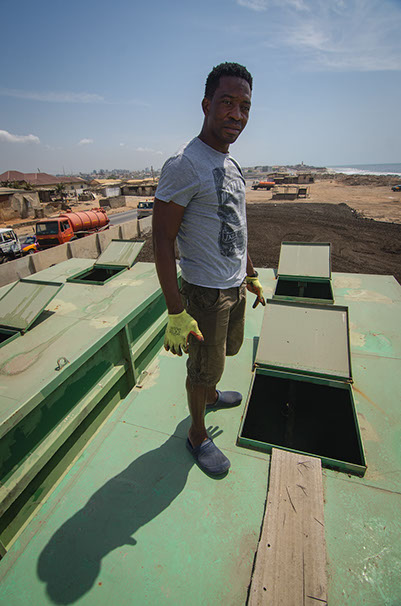
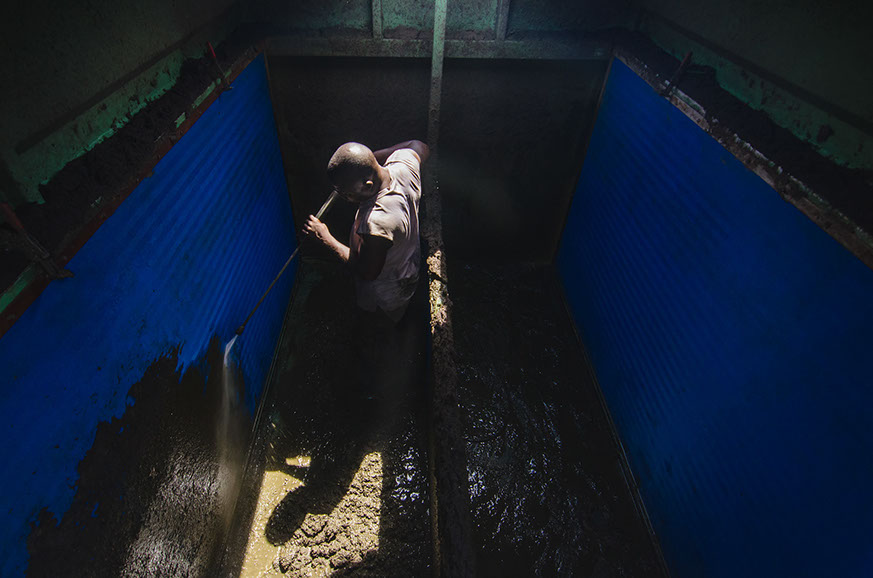
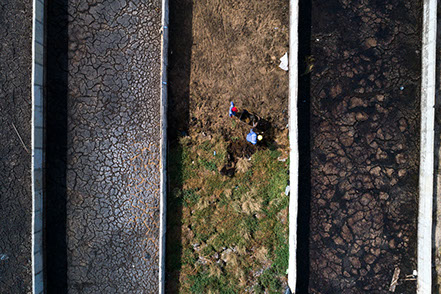
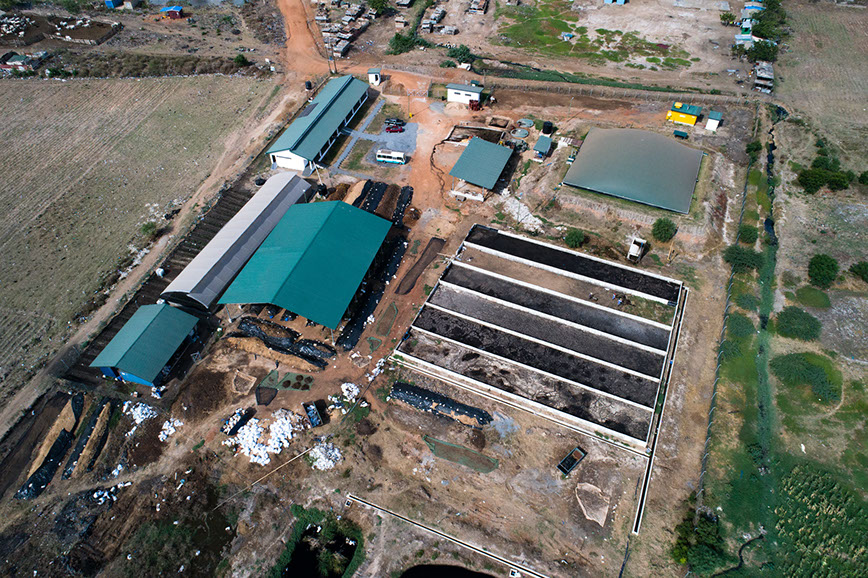
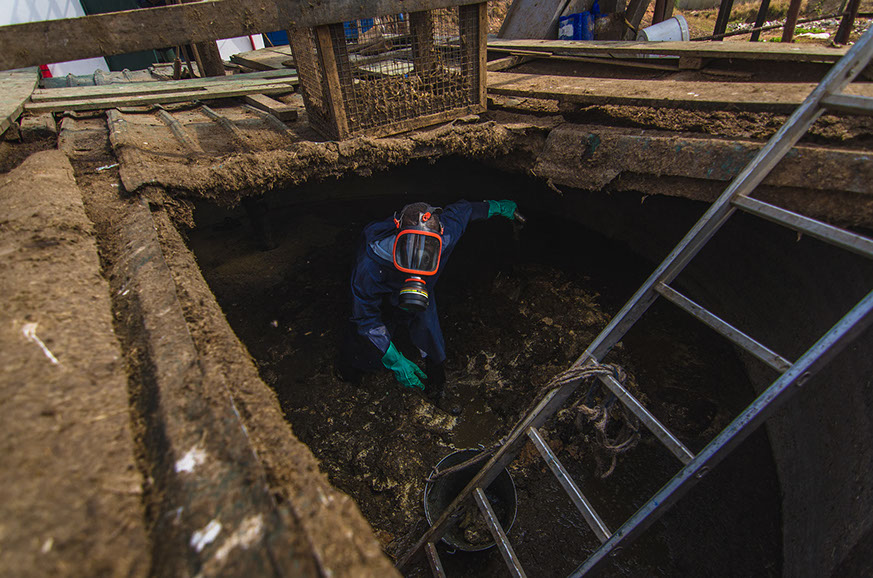
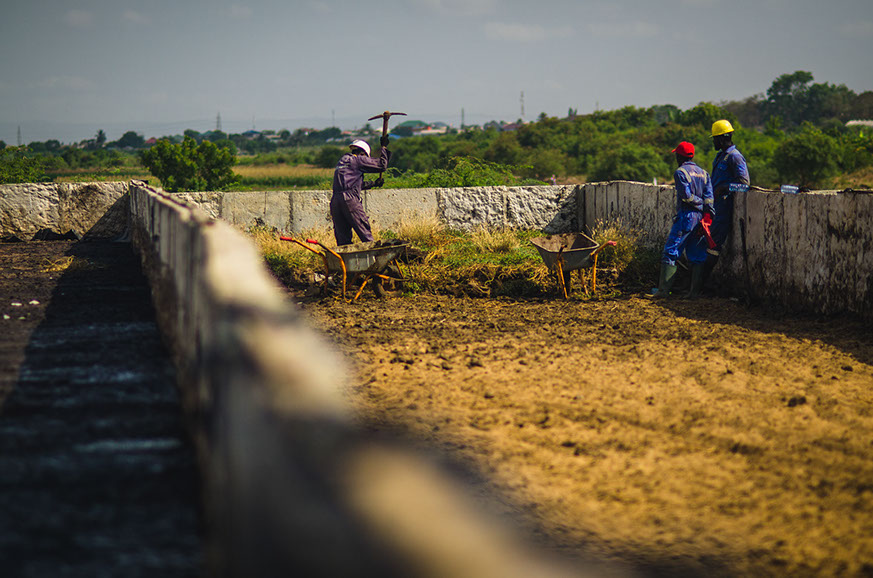
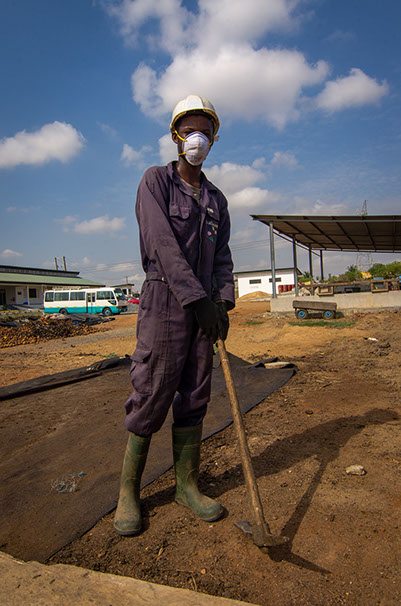
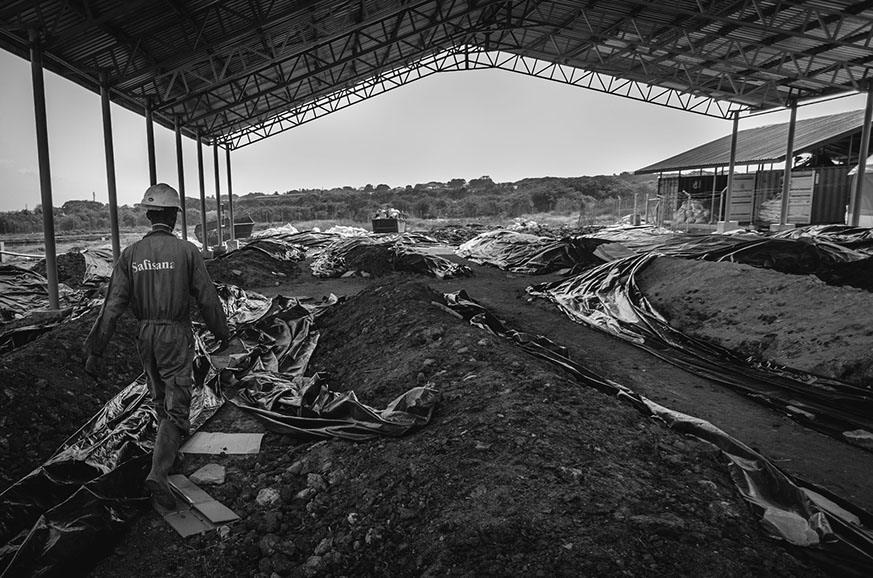
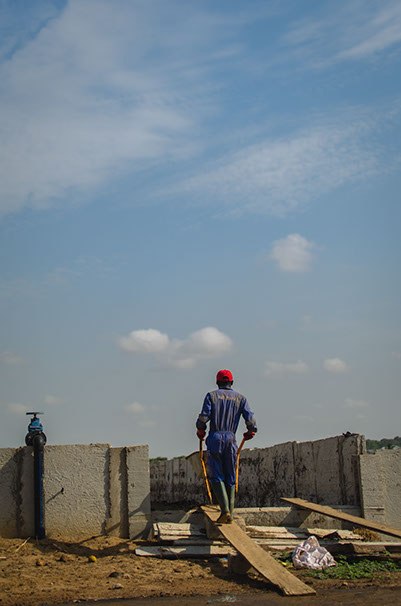
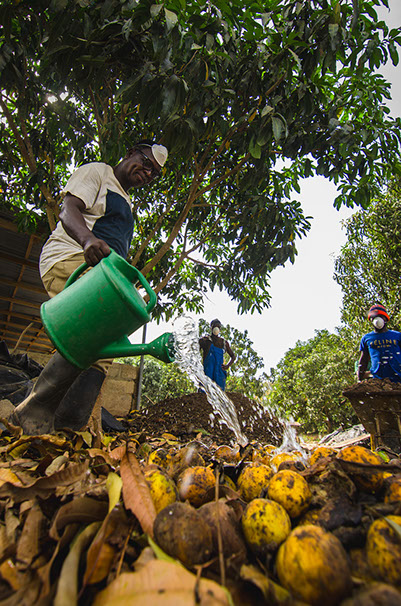
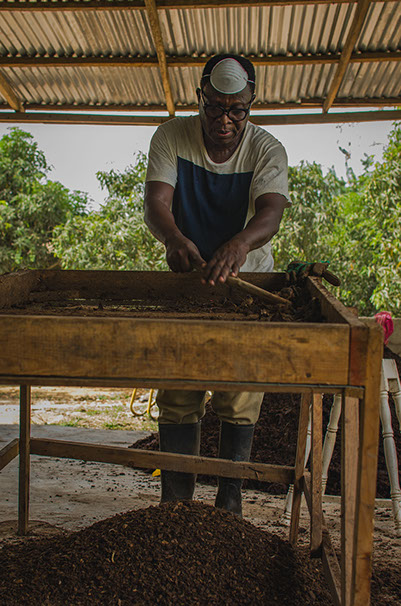
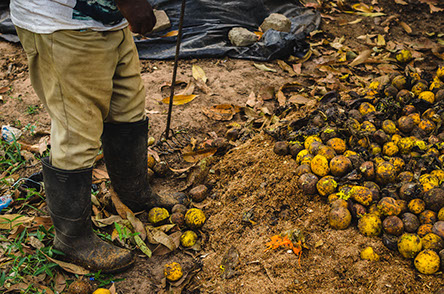
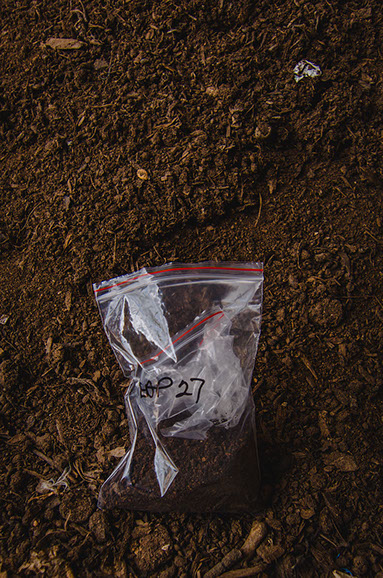
<
Bola Boden is a waste management facility that has been around for under a year. The facility is responsible for cleaning the beaches around.
A sewage truck unloads its tank at the Bola Boden waste treatment facility in Accra, Ghana. The water is treated at the facility and the sludge from the tanks is turned into compost.
Bola Boden features eight sewage tanks where human waste is transformed into compost. The other side of the tanks is where the sludge dries.
On top of one of Bola Boden’s eight sewage tanks, one of the employees explains the composting process. Sludge is pumped out of the tanks and it dries in the area adjacent to the tanks to turn into compost.
Inside of the eight tanks on site at Bola Boden, a worker pressure washes out human waste to prepare it for the next cycle of treatment.
Workers at Safisana transfer supplies to another part of the facility as part of the compost process. Safisana’s objectives in providing organic fertilizer and electricity address eight of Ghana’s Sustainable Goals Agenda. These include good health and well-being, gender equality, clean water and sanitation, affordable and clean energy, decent work and economic growth, industry, innovation, and infrastructure, sustainable cities and communities, and climate action.
Safisana inputs organic waste and public toilet waste to output organic fertilizer and electricity to communities around Accra, Ghana.
Inside the wastewater drainage tank, a worker loads up large debris from the sludge in preparation for its pumping into the holding tank.
Pickaxes are used by workers to break up the sludge that will be added to rotting market fruits and vegetables to turn into compost.
Pickaxes are used to break up the sludge that will be added to rotting market fruits and vegetables to turn into compost.
Walking through the rows of compost production piles a worker at Safisana checks for a pile that is ready to be bagged.
A worker at Safisana goes bank into a sludge treatment facility to collect the decomposed mixture to turn into compost.
One of the workers at the UOWAIP farm pours water onto the new pile of compost. Mixing water and sawdust into the rotting fruits and vegetables helps to speed the process of composting.
One of the workers at the UOWAIP sifts the final compost pile to remove any large debris before bagging.
One of the workers at the UOWAIP farm mixes in sawdust to a new pile of compost. Mixing water and sawdust into the rotting fruits and vegetables helps to speed the process of composting.
A pile of compost awaits bagging at Jekora Ventures, one of the compost facilities in Accra. Jekora Ventures partners with Safisana, the Environmental Protection Agency of Ghana, and several municipality districts in order to ensure that waste is properly managed and disposed of.
>
Through Science and Memory’s partnership with the University of Ghana, and their work with the Department of Environmental and Sanitation Services, we got to tour local facilities. These photos were taken at Bola Boden, Safisana, Jekora Ventures, and at the UOWAIP farmer program. Take a look into the process of composting in Accra, Ghana.
